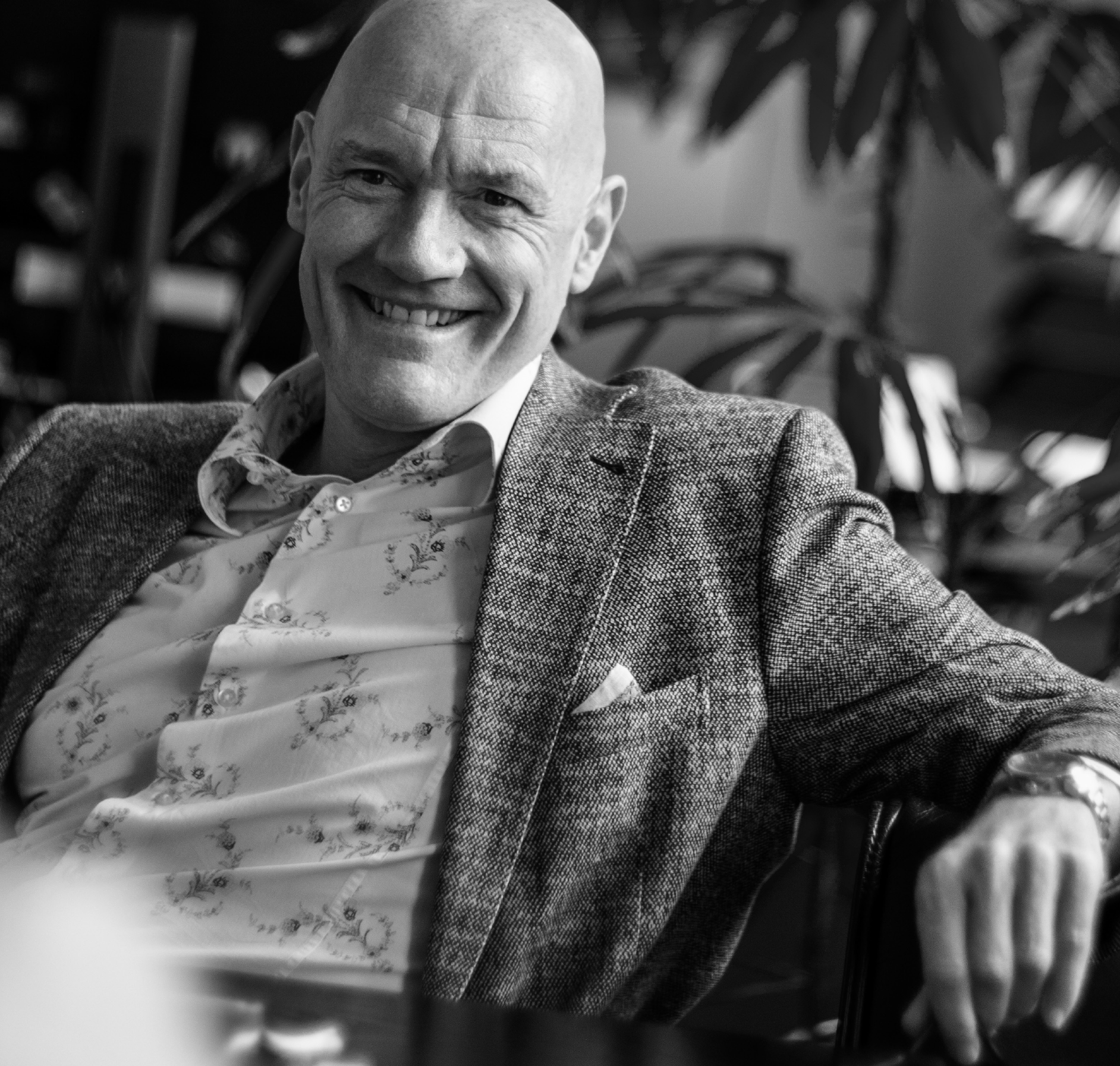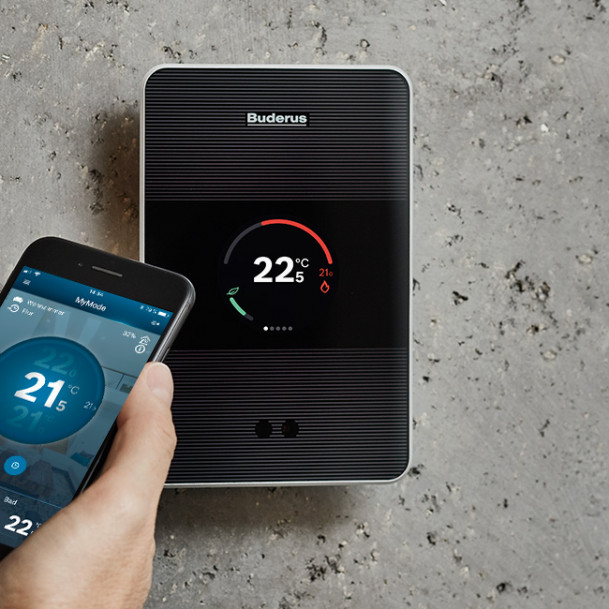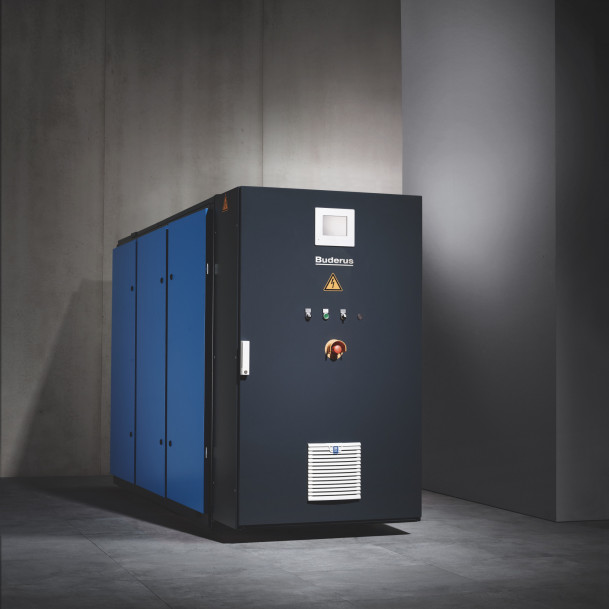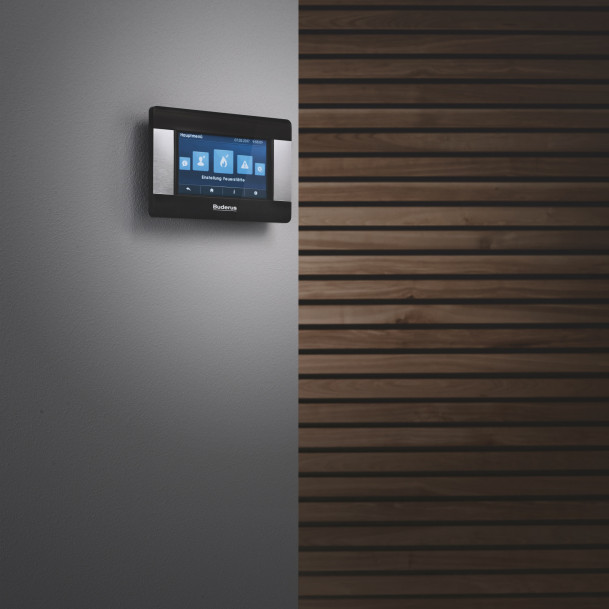The Future is Blue
In the automotive industry, blue is the universal color for everything driven electrically. At Buderus, blue represents a variety of innovative systems and their intelligent interconnection.
Climate objectives are good and important. It is not only in this country where heated discussions are held about the best way to achieve them. If there was the one patent remedy saving one and all, we and most importantly the environment would be spared a lot. But this patent remedy doesn’t exist. Even if the automobile industry in Germany which discusses the subject in a rather emotional and undifferentiated way claims that electrically powered vehicles were the answer to everything. The prognosis that there won’t be just that one solution for everyone but rather several ways of reaching the climate objectives from which we will all benefit in the end is far more likely in this regard.
The best and most sustainable solution for each purpose
How this could work was demonstrated at this year's ISH, the world’s leading trade fair for water, heating, and climate in Frankfurt/Main. At least, one got the impression that this industry was streets ahead of the colleagues from the automobile industry where this subject is concerned. Uwe Glock, Chairman of the Board of Management of Bosch Thermotechnik, pointed out: “If we want to accomplish the energy transition, we have to tap the efficiencies of all sectors. For that purpose, one requires efficient facilities and preferably renewable energies in all sectors.” The following holds true here: The end does not justify the means but the best means have to be provided to reach each end.
The slogan “Shaping the future together” which Buderus introduced at the trade fair says exactly this: finding the best and most sustainable solution for each purpose together with the customers. “It doesn’t make any sense at all to offer one solution for all customers all around the world,” Stefan Thiel, Head of Sales at Buderus Germany, explains, “rather, we have to consider which might be the most beneficial effects for each individual case. Private households require other solutions than companies. And the requirements and specification profiles differ from country to country as well.” For that reason, Buderus sees their customers as partners: the heating contractors, the plumbers and the project developers but also the end-users who are much better informed today than they were in former times. What do customers appreciate the most about Buderus? It doesn’t take Stefan Thiel long to think about it: “Our reliable and innovative products but most of all our expert knowledge about the systems, and not to forget, the human factor which we particularly cultivate at Buderus.”

Intelligently linked-up technologies and systems
In order to be able to implement this expert knowledge in efficient solutions, the program of the heating technology specialists from Wetzlar contains different technologies and products. The program ranges from condensing boilers and solar technology to biomass heating plants and cogeneration units. The innovative Logatherm thermal heat pumps which draw energy for heating and warm water from the outside air, the earth or the groundwater have a high level of efficiency and are extremely resource saving. What is more, Bosch Thermotechnik, together with its brands, pushes the advancement of the fuel cell development based on SOFC technology (Solid Oxide Fuel Cell) for potential new energy systems.
However, it is essential that the mentioned technologies and systems can be coupled or interlinked in an intelligent way – no matter if one wants to install a new unit or upgrade an existing one. Consumption, generation and storage of the energy are controlled by means of digital energy management to yield optimum results. That way, inhabitants of smart homes are able to save up to 70 percent on their energy consumption costs thanks to an efficient digital control and regenerative solar energy in connection with a storage battery. The fuel cell technology SOFC is meant to provide an interconnected and decentralized energy supply on a large scale, for example in cities or data centers. “The contribution we make to achieving the climate objectives is enormous,” Stefan Thiel says pointedly, “and we consider it our priority assignment to take as many people as possible along on our way to a sustainable future.”



